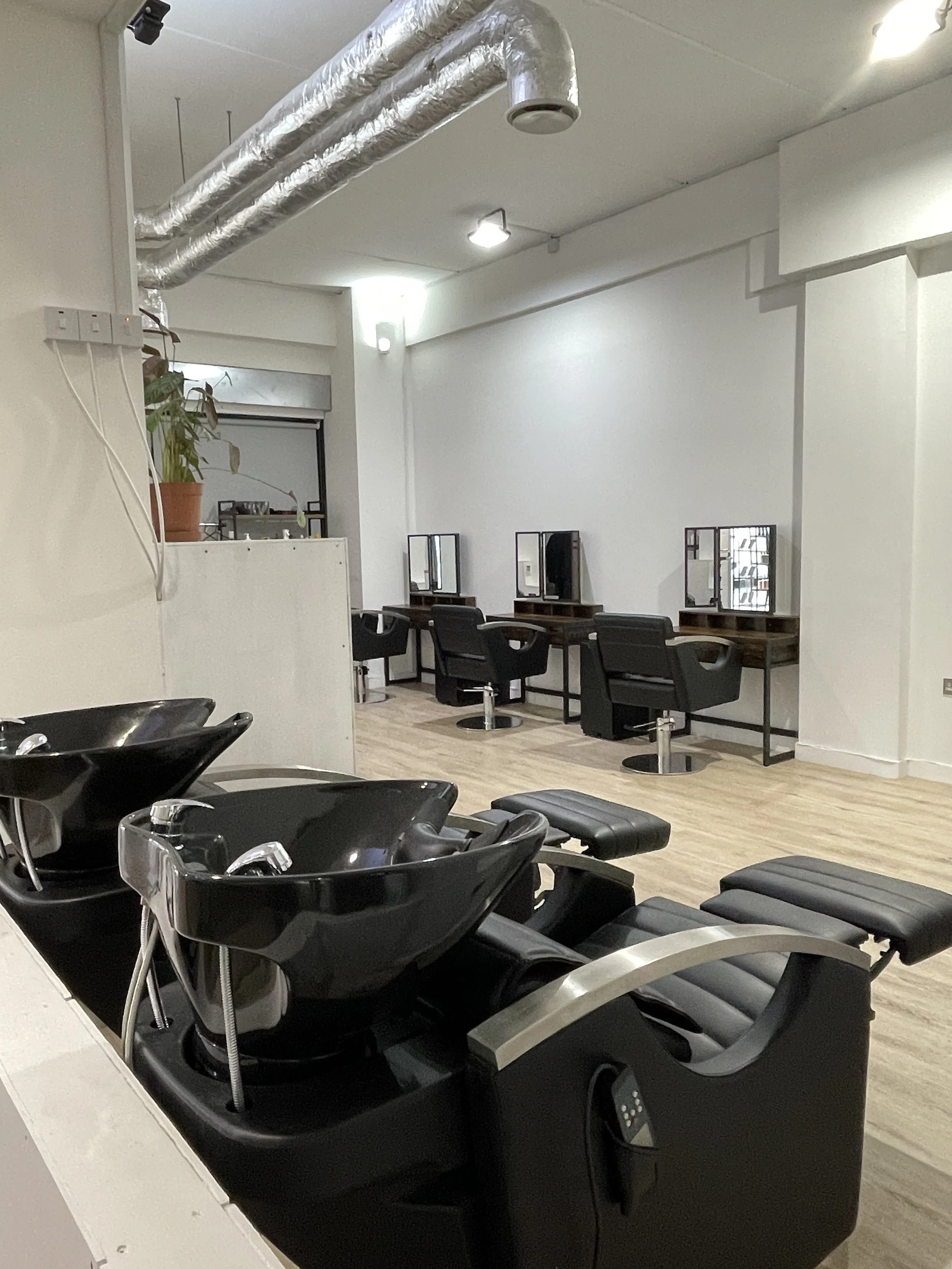Surviving uk hairstylists : an ongoing saga
Over the last 24hours social media has been awash with videos and post, covering the latest drama.
In this scenario, a tearful client was asked to leave the home of her stylist mid service, due to complaints of being cold.
Since then, as usual in these instances the comments are filled with often heard battle cries of “Name and shame them”, “This never happens at white salons” and “report them to hmrc”.
While I sympathise with the clients involved who have been left wanting by a “rouge” service provider, the ensuing commentary often shows a large disconnect between what the general public perceive about businesses, their owners, the rules they have to follow and the consequences of not doing so.
The aim of this piece is twofold:
For the public and clients: to provide context and guidance on picking a stylist. Essentially how to spot red flags and what to do if things go wrong
For stylists: to help ensure you avoid even getting into situations that leave you or your clients at risk.
Focusing of these key areas:
Picking a stylist
Policies and procedures
When it all goes wrong
Picking a stylist
“Where are all the good black hairstylists, with good customer service, who don’t charge an arm and a leg?”
I jokingly refer to the braiding and styling classes at Untype as “Aunty propaganda sessions”. During a class, when attendees notice sore hands or fatigue from uncomfortable standing positions, this is always linked back to stylists who work like this day in day out. While the aim is to educate on the skill needed, it also highlights the physical toll on the body and working conditions being directly linked to service costs.
Recommendations are always the go to for finding stylists but there are also several impartial booking sites dedicated to platforming and highlighting black stylists. Gone are the days of walking down your local pre gentrified high street and hoping that your intuition guides you to pick the best aunty from the bunch. You can now select stylists based on reviews, location and price.
Tressly, Black hair directory uk, Fro hub, Mane hook up, Bookd
Even treatwell and fresha have search functions
Is the business address clearly listed and how are bookings made?
Working from home and “dm to book” are not particularly red flags however they can indicate that the service may differ from salon experience.
Lots of stylists work from home, if not made clear, a usual tell is “address will be sent x hours before your appointment”. In terms of safety I fully understand, however it should be sent as part of the booking confirmation regardless of time before the appointment and the local should be stated ie:
Home studio in Bermondsey, closest station is Rotherhithe. Having just the first part of the postcode (SE1) is not enough. Even better would be to list how far the station is, parking or other transport options.
In the year 2025, every service provider should be using some kind of booking platform. There are so many options to choose from and it significantly reduces the admin burden, also making the customer journey smoother. There is nothing worse than waiting for a response on price or going back and forth to find available dates. Admin is something that I admittedly really struggle with, but having all of my booking info readily available means that for the most part, clients do not need to contact me to access my services.
Even for highly specialised and bespoke pricing using a platform to book in consultations or schedule meetings to discuss the requirements, can be ideal for clients.
A few things to note
In the UK, while there are courses to teaching hairdressing and styling, there is no legal requirement for qualifications to provide these services to the public.
That means ANYONE can wake up and decide to provide a service to the general public without any qualifications or oversight.
What should be in place
Public and professional insurance - these are also not legally required. The only requirement is for employers insurance
While rental or mortgage agreements may put some restrictions on home working, most councils do no have and licencing requirements for hairdressing services. Health and safety regulations are again limited to mostly employees and require only serious injuries to be reported. The ICO handles data protection and most businesses will be required to register and there is some handling of personal data.
So the barrier to entry is basically audacity, on one hand this is great as it allows more chances for people to pursue a creative career, however it does potentially leave the public open to dangerous situations which is why vetting and reviews are so important.
Policy and procedures
Talking about salon policies is something I rarely do publicly as I see the nuances from both sides. Until a situation arises which acknowledges a lack of clear boundaries it may be difficult to see the need for certain policies but it is often a fool me once experience. For example, it wasn’t until I started in a co working salon with higher rates that I took deposits and developed a cancellation policy, as my first (and regular client) no showed, and I still had to pay chair fees.
For services, you are essentially entering a contact with the provider which will give you both rights and protections.
As a consumer it is important that you understand the context, all polices should be clearly laid out before you book and pay.
Deposits
Drop money directly into a bank account at your own risk! While solopreneurs and self employed individuals can have business accounts in their name, it can be difficult to recover funds paid directly into an account without significant evidence.
Having a payment service like PayPal, stripe and square etc, gives an extra layer of protection and usually means they are in good standing and high disputes can result in getting kicked off the platform.
Non refundable deposits are debatable - for service that require customisation/ short notice or the like sure, but it should be a small percentage of the final amount.
Cancellation and rescheduling
Having a proper booking system makes this process simple. Clients should be able to reschedule easily within a reasonable timeframe. For small/ solo businesses, it can be hard to fill spaces at short notice hence, cancellation policies where up to 72h notice may be needed. Again this is down to the individual and understanding that no shows can cost businesses dearly.
Lateness and penalties
Starting 10mins late may not seem huge, but it could mean no break between clients, less time spent on finishing touches or wiggle room for amendments. While I personally do not charge late fees I understand why others do.
So what happens when the stylists runs late, do you get money off?
This is a fair question and could be argued that compensation to the same standard is not only reasonable but required.
When it all goes wrong
Sometimes things just don’t work out and I am a very big champion of giving my customers the space to air their concerns or complaints.
Many people can feel nervous or unable to voice issues immediately however it can work against you if you don’t.
Being amicable doesn’t mean lying. You have spent hours in the chair and at the final reveal you are super disappointed with the look. Rather than say everything is ok and you are happy, this is the point to tell your stylist that your expectations haven’t been met. (Ideally there would have been opportunities before this point but it might not have worked out like that).
There are then 2 pathways: Redo or refund. Consumer law is pretty clear about remedies for unhappy services.
While social media can be helpful for spreading awareness of poor behaviour and business practices, it doesn’t seem to be resulting in changed behaviour of the accused or the type of stylist involved.
Reporting a business to HMRC for tax evasion isn’t the gotcha you think. Firstly, there is no public registry of self employed workers in the Uk, ergo a business not listed on companies house is more likely a private individual with a trading name.
While cash in hand can seem like tax evasion, if you are concerned, ask for written receipts via text or email. Or label bank transfers with your name and service details.
Outside of public flogging, a way to really keep poor and consistent “offenders” in check is to report infringements to your local consumer service, council, trading standards.
Due to lack of professional supervision and standards at entry it can be hard to block or stop the traders from continuing to offer services but ombudsman and small claims court can offer financial restitution to those affected.
When I look across the water at America, with stringent rules for beauty providers and the alternative natural hair or braider licence (now revoked in some states)but how it still results in confusion and frustration over services and limitations.
It is hard to envisage at what point bad stylists will no longer be an issue. The need for education and regulation is high but often these put unfair limits on marginal communities and pushes out those it was meant to protect.

